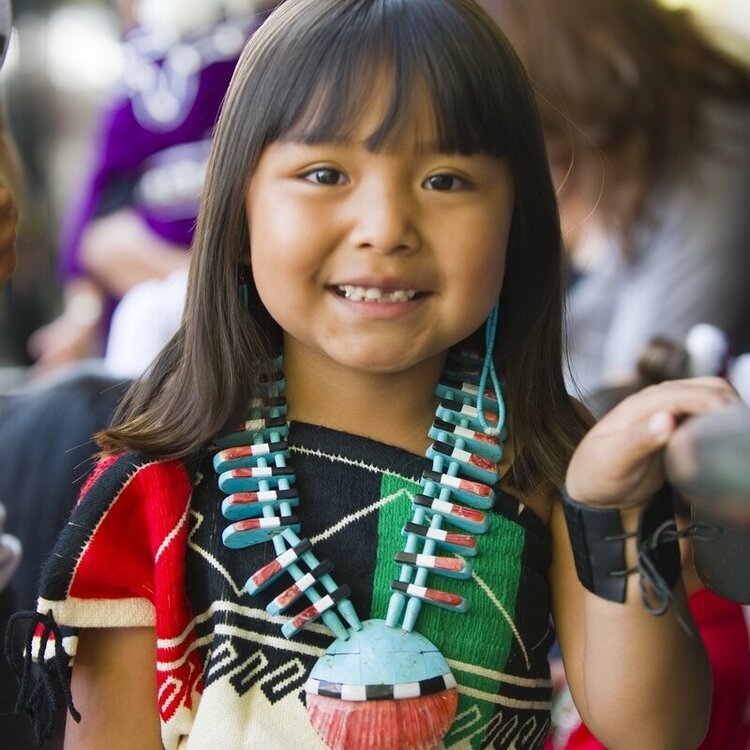The ABC Blog
By Natalie Roisman
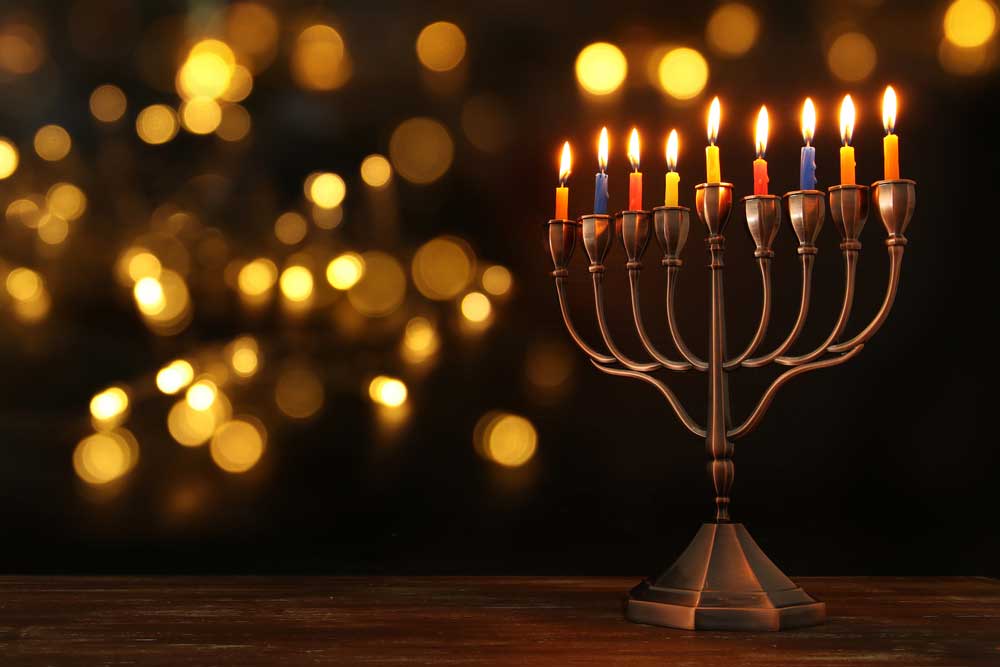
There’s A Lot to Love About Chanukah
As we near the end of Chanukah, I’m honored to share some thoughts about this holiday with all of you in Atlas Book Club.
For eight nights of Chanukah, we light candles, sing blessings and songs, eat potato pancakes called latkes (LAHT-kuhs) or other fried foods like donuts, play with a spinning top called a dreidel (DRAYD-uhl), eat chocolate coins (gelt), and some families give gifts, especially to kids. The candles are put in a special nine-branched candelabra known as a “menorah” (mih-NO-ra) or “chanukiah” (chan-oo-KEE-ya).
It’s a fun, light-filled, kid-friendly holiday that falls amid a fun, light-filled, kid-friendly holiday season. There’s a lot to love about Chanukah! But it’s worth also understanding that it is actually a relatively minor holiday in the scheme of Judaism and that its history and tie-in to current events are complicated.
Chanukah’s History – A Great Reminder
Chanukah is part of a very long story of a religious faith that has been oppressed in various ways around the world for thousands of years. It is a celebration of survival, miracles, and the struggle for holiness. The Chanukah story takes place in the holy Jewish Temple in Jerusalem around 165 B.C.E, amid an effort by the Seleucid Empire to impose ancient Greek culture, religion, and language on the territories they ruled. When they outlawed observance of Jewish rituals, erected a statue of Zeus in the Temple, and sacrificed pigs (a non-kosher animal) there, a Jewish group called the Maccabees rose up in battle to reclaim and rededicate the Temple to its sacred Jewish uses. The legendary miracle of Chanukah is that while the Maccabees could find only a small amount of oil, perhaps one day’s worth, to re-light the Eternal Light in the Temple, that small amount burned consistently for eight days until more could be obtained.
Chanukah is a time for light and miracles. It also is a critical reminder of the many ways that leaders and people of other religions and cultures have dismissed and desecrated Jewish people, holy items, and places for centuries. This reminder is important now because of a new rise in global antisemitism, the marginalization or oppression of people who are Jewish based on belief in stereotypes or myths about Judaism or Jews. In this country, one out of four Jews reported being the subject of antisemitism over the last year alone.
Sometimes antisemitism looks like name-calling. Sometimes it’s vandalism. Sometimes it’s violent. The best word to describe most antisemitism is “insidious.” It’s cloaked in words and phrases that are steeped in anti-Jewish sentiment and send clear messages to those who know. Antisemitism can be perpetuated by those who don’t realize the history or coding of the words or ideas they are sharing. It happens on both the political right and left, and it happens within all communities and cultures. A clear understanding of antisemitism and its tropes is essential to fight it.
Antisemitism also can sometimes look like exclusion or marginalization, and unfortunately the winter holiday season in schools, workplaces, and neighborhoods is often an example of this. Songs, parties, parades, decorations, gifts — it’s all Christmas. Of course the vast majority of Americans celebrate Christmas and only a tiny sliver of the population is Jewish. It’s not the scale of Christmas that is the problem, but rather the assumption that Christmas is for everyone. Christmas is a beautiful holiday that I enjoy, but it is not *my* holiday or my children’s holiday. For centuries, Jews have been forced to convert and assimilate and take on the trappings of Christian nations, so this is an extremely sensitive point.
Similarly, Chanukah doesn’t become a more important Jewish holiday simply because of its proximity to Christmas. We can’t fix the centering of Christianity by ascribing greater value to Chanukah than Jewish tradition warrants.
Chanukah Facts and Traditions
Like I said, it’s complicated. But there are some things we can all do that will make Jewish kids feel seen in an authentic way. Here is a Chanukah fact or tradition and something to think about for each night of the holiday:
1. One name for Chanukah is the Festival of Lights.
It’s amazing to think that so many religions and cultures have holidays based around light (Diwali, Eid al-Fitr, Kwanzaa, and Christmas, to name a few). We are all looking for light, and we are all inspired and empowered by it. May we find a way through the dark times we are experiencing personally, communally, and around the world. May we be the light for others.
2. Another name for Chanukah is the Festival of Rededication.
My rabbi likes to talk about making the old new and making the new holy. Never in my life have I been challenged to do this as much as during the COVID-19 pandemic. We are living, learning, working, mourning, and even celebrating in ways we never imagined. We have the chance to rededicate our lives in new ways to the people and practices that are holy to us. May we dedicate ourselves passionately to noble and righteous causes. May we dedicate time and sanctify physical space in our lives to our families, our friends, and the pursuit of what makes each of us happy.
3. Chanukah is about a military battle.
And to be honest, that battle was won by people who by today’s standards likely would be considered religious extremists. We can rejoice in the restoration of the Temple and the victory of an oppressed religious community without holding up those who led it as unstained heroes. May we always strive first for consensus and compromise, as we are more alike than different. May we use force only when necessary, and may we have the courage and strength to fight the real battles for hearts and minds. May we emulate the passion and commitment of the Maccabees but also embrace diversity of faiths (and no faith at all) as part of our vibrant society.
4. Chanukah is about a triumphant underdog.
May we all achieve many victories, but remain humble and peaceful. May we stand up for those who lack the power or voice to stand up for themselves. And may we fight for what we know is morally right regardless of what the law says.
5. Chanukah is about placing a chanukiyah in the window to show that one is celebrating.
May we all be brave enough to be who we are, no matter who is looking. May we stand in solidarity with those who otherwise would stand alone.
6. Chanukah is about religion and spirituality.
May those of us who identify with a faith have the freedom to practice, and may we all be free from hatred and violence purportedly wielded in the name of religion. I’d love for people to learn and get excited about Jewish holidays beyond Chanukah, ones that take place at a time that isn’t primarily focused on Christmas. We have a rich, vibrant tradition of holidays and rituals throughout the year that showcase the depth and diversity of Judaism far better than the narrow story of Chanukah ever can.
7. Chanukah is about a small supply of oil that burned for longer than it should have.
This is why we fry up potato pancakes and donuts throughout the holiday. While prioritizing good health, may we eat foods fried in oil without regret, because they are delicious, and life is short and precious. And did I mention they are delicious? I like my latkes with either applesauce or sour cream.
8. Chanukah is about a miracle.
We live in a time where we need miracles and where we can all be part of making miracles happen. May the next year bring the miracle(s) each of us is hoping for, and may we bring miracles to those who need them most.
There is a ninth candle, a “helper” candle called the “shamash” (sha-MAHSH) that lights all the others. I like to talk with my children about how we can each be a helper to all those around us, to our communities, and to our world — how we can help bring light. How can you be a light if you are not Jewish? I encourage you to have a little Chanukah fun — fry up some latkes, spin a dreidel, listen to Leslie Odom’s modern version of the classic Chanukah song, Ma’oz Tzur, featuring his wife, Nicolette Robinson. Then commit to calling out antisemitism. Make a plan to look beyond Chanukah to more important days in the Jewish year. Work to understand why Jewish holidays are so often first and foremost a story of religious and cultural survival, and how that fight continues.

Hello Parents,
I can hardly believe it is December. This time last year, Atlas Book Club had just launched! What a year it has been. And we could not have done it without you. Thank you!
I want to take a moment to tell you about our work with United For Kids Foundation (UFK). UFK is a non-profit organization based in Nigeria focused on providing educational resources to children in need. As you may know I grew up in Nigeria and books were my windows to an outside world; they fueled my imagination and allowed me to dream big! Because of your support, last month we donated hundreds of books to UFK’s Library on Wheels program. These books will reach children in impoverished parts of Lagos, Nigeria and will, hopefully, allow them to dream big, too. You can learn more about UFK at http://unitedforkidsfoundation.org/.
On to this month’s books – we are exploring Poland! Our intention for this month is to showcase the diversity of Poland and Jewish stories outside of the “single story.” Our Hatch book is a beautiful picture book translated from Polish to English. I just love this simple story about an unlikely friendship. Our Nest Jr. book is absolutely fantastic and easily my favorite this month. This book represents intersectionality at its best and brings together two people from completely different backgrounds to make history. I know that is such a teaser! Next, our Nest book provides a window into the lives of an Orthodox Jewish family in the 1920s, before World War II. I love that we get to be a part of their family traditions and relationships, unmarked by the tragedies to come. And lastly we get a beautiful love story with our Soar book! This book weaves romance, magical realism, time travel and history all in one, and it is FANTASTIC!
I am super proud of these selections and I’d love to hear your thoughts. Drop us a line at info@atlasbookclub.com or send us a message on IG or Facebook.
Wishing you all a wonderful holiday season! <3
-Bunmi
WHILE YOU WAIT FOR THE DECEMBER BOX CHECK OUT THIS BOOK LIST OF POLISH STORIES! LET US KNOW WHAT BOOKS YOU’RE MOST EXCITED ABOUT ON SOCIAL MEDIA.
Locomotive by Julian Tuwim, Lewitt and Him (Illustrator)

In the late 1930s renowned Polish poet Julian Tuwim, was asked to write three poems for children. The publisher Przeworski connected the three poems into one book, Locomotive, and commissioned illustrations from celebrated Polish illustration duo Lewitt and Him. Locomotive was the beginning of a creative partnership that lasted many years.
Featuring the original three poems, Locomotive, The Turnip, and The Bird’s Broadcast, children learn what’s inside each train carriage as it chugs along, how many people, animals, and friends it takes to pull a turnip from the ground, and what happens when birds of all kinds gather for a meeting in the woods.
After its original publication in 1939 in Polish, Locomotive was swiftly translated into French and English the next year, appearing at a time when it would have been a surprise and a joy to encounter bright colors and modernist- inflected imagery. Both classic and modern, its imaginative storytelling and appeal has endured and will delight children today as much as it did eighty years ago. (Thames & Hudson) Great for Hatch readers.
Marie Curie by Maria Isabel Sanchez Vegara, Frau Isa (Illustrator)

When Marie was young, she was unable to go to college because she was a woman. But when she was older, her scientific work was respected around the world. Her discoveries of radium and polonium dramatically helped in the fight against cancer, and she went on to win the Nobel Prize for Physics! This moving book features stylish and quirky illustrations and extra facts at the back, including a biographical timeline with historical photos and a detailed profile of the scientist’s life. (Frances Lincoln Children’s Books) Perfect for Nest Jr. readers.
The Mermaid of Warsaw: and other tales from Poland by Richard Monte, Paul Hess

The 8 colourful tales in this collection of enchanting, wicked and often very funny Polish folk tales include The Mermaid of Warsaw and other stories gathered from cities, salt mines, lake and mountain regions, with stylish illustrations by Paul Hess. (Lincoln, Frances Limited)
The Boy in the Striped Pajamas by John Boyne

Berlin, 1942: When Bruno returns home from school one day, he discovers that his belongings are being packed in crates. His father has received a promotion and the family must move to a new house far, far away, where there is no one to play with and nothing to do. A tall fence stretches as far as the eye can see and cuts him off from the strange people in the distance.
But Bruno longs to be an explorer and decides that there must be more to this desolate new place than meets the eye. While exploring his new environment, he meets another boy whose life and circumstances are very different from his own, and their meeting results in a friendship that has devastating consequences. Great for Soar readers.
Atlas Book Club is a participant in the Amazon Services LLC Associates Program, an affiliate advertising program designed to provide a means for us to earn fees by linking to Amazon.com and affiliated sites. Atlas Book Club earns a small commission for each Purchase Here link.
Did you know that November is Native American Heritage Month? We are so excited here at Atlas to be featuring Native American culture and stories! I am sure you have heard me mention an infographic by the School Library Journal that showed that in 2018, only 1% of children’s books published here in the United States featured an American Indian/First Nations character. That number is up from 0.9% in 2015. We can do better!
This is why our goal for the month of November, and months to come, is to feature Indigenous stories as often as we can. We did this last month with the Aboriginal stories from Australia. Did you enjoy those? You can get them now if you missed them, and they are on sale! In addition to exposing your child to these stories, we are hoping, with our small contribution, that the publishing industry will start to take notice that there is, indeed, a demand for these stories.
Now on to the preview of the diverse Native stories that your child will be getting this month! With our Hatch we are featuring the story of a little girl spending time with her grandmother – just a regular day with this Interior Salish family set in British Columbia. Our Nest Jr. readers will learn more about a historic Native woman of the Hidatsa tribe of what is now know as North Dakota, while our Nest readers will follow along the history of the Choctaw Nation in this heart breaking, beautifully written historical fiction novel. And last but certainly not the list, our Soar selection is about a tale of two boys, one Native and the other white, as they forge a beautiful friendship set in the Tuscarora Reservation of what is now known as Niagara County, NY.
I am super proud of these selections. If you haven’t, you can still subscribe below to get our November boxes. We hope we have succeeded in providing selections that gives a small insight into a few of the hundreds of Native tribes across North America.
WHILE YOU WAIT FOR THE NOVEMBER BOX CHECK OUT THIS BOOK LIST OF NATIVE AMERICAN AND FIRST NATIONS STORIES! LET US KNOW WHAT BOOKS YOU’RE MOST EXCITED ABOUT ON SOCIAL MEDIA.
My Heart Fills With Happiness by Monique Gray Smith, Julie Flett (Illustrator)
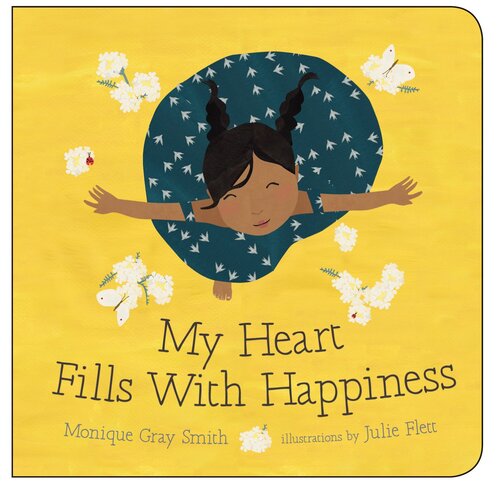
The sun on your face. The smell of warm bannock baking in the oven. Holding the hand of someone you love. What fills your heart with happiness? This beautiful board book, with illustrations from celebrated artist Julie Flett, serves as a reminder for little ones and adults alike to reflect on and cherish the moments in life that bring us joy. (Orca Book Publishers)
Great for Hatch readers.
When We Were Alone by David A. Robertson, Julie Flett (Illustrator)
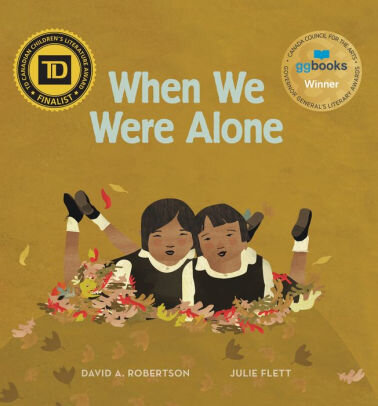
When a young girl helps tend to her grandmother’s garden, she begins to notice things that make her curious. Why does her grandmother have long, braided hair and beautifully coloured clothing? Why does she speak another language and spend so much time with her family? As she asks her grandmother about these things, she is told about life in a residential school a long time ago, where all of these things were taken away. When We Were Alone is a story about a difficult time in history, and, ultimately, one of empowerment and strength. (Portage and Main)
I Can Make This Promise by Christine Day

All her life, Edie has known that her mom was adopted by a white couple. So, no matter how curious she might be about her Native American heritage, Edie is sure her family doesn’t have any answers.
Until the day when she and her friends discover a box hidden in the attic—a box full of letters signed “Love, Edith,” and photos of a woman who looks just like her.
Suddenly, Edie has a flurry of new questions about this woman who shares her name. Could she belong to the Native family that Edie never knew about? But if her mom and dad have kept this secret from her all her life, how can she trust them to tell her the truth now? (Harper Collins Publishers)
The Marrow Thieves by Cherie Dimaline
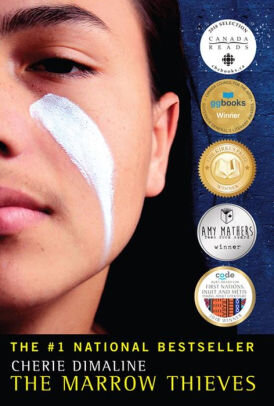
Humanity has nearly destroyed its world through global warming, but now an even greater evil lurks. The indigenous people of North America are being hunted and harvested for their bone marrow, which carries the key to recovering something the rest of the population has lost: the ability to dream. In this dark world, Frenchie and his companions struggle to survive as they make their way up north to the old lands. For now, survival means staying hidden—but what they don’t know is that one of them holds the secret to defeating the marrow thieves. (Cormorant Books)
Atlas Book Club is a participant in the Amazon Services LLC Associates Program, an affiliate advertising program designed to provide a means for us to earn fees by linking to Amazon.com and affiliated sites. Atlas Book Club earns a small commission for each Purchase Here link.
We know you are eagerly waiting for the October box featuring a diversity of Australian culture. This month we are excited to explore Aboriginal culture in Australia and also some of out favorite types of books featuring kids just being regular kids. While you’re waiting, check out this short book list for books we think you and your kids will enjoy.
Let us know on social media what book you’re most excited about!
Big Rain Coming by Katrina Germein, Bronwyn Bancroft (illustrator)

As one dry day follows another in the Australian outback, everyone and everything is waiting for the rain, which seems as though it will never come. Rosie”s kids, the panting dogs, the fat green frogs, and Old Stephen all do what they can to keep cool as they watch for storm clouds on the horizon. Stunningly beautiful full-color artwork and spare text evoke the long wait during the dry season, and the jubilant relief when the long-promised rain finally arrives. Any child can identify with the theme of how hard it is to wait for something you want, and the outsize, brilliantly colored, stylized illustrations—which feature imagery from Aboriginal mythology—make this an especially striking picture book that will captivate and delight young readers. (Penguin Publishing Australia)
What Zola Did on Wednesday by Melina Marchetta, Deb Hudson (Illustrator)

Zola loves living on Boomerang Street with her mum and her nonna. Every day of the week is an adventure. But Zola has a problem. No matter how much she tries, she can’t keep out of trouble! Like on Wednesday, when Zola has a plan to help find her friend Sophia’s missing turtle . . .Collect all seven stories in the series. One for every day of the week.
Sister Heart by Sally Morgan

A young Aboriginal girl is taken from the north of Australia and sent to an institution in the distant south. There, she slowly makes a new life for herself and, in the face of tragedy, finds strength in new friendships. Poignantly told from the child’s perspective, Sister Heart affirms the power of family and kinship. This compelling novel about the stolen generations helps teachers sensitively introduce into the classroom one of world’s most confronting histories. (Freemantle Press)
The Book Thief by Markus Zusak

When Death has a story to tell, you listen.
It is 1939. Nazi Germany. The country is holding its breath. Death has never been busier, and will become busier still.
Liesel Meminger is a foster girl living outside of Munich, who scratches out a meager existence for herself by stealing when she encounters something she can’t resist–books. With the help of her accordion-playing foster father, she learns to read and shares her stolen books with her neighbors during bombing raids as well as with the Jewish man hidden in her basement.
In superbly crafted writing that burns with intensity, award-winning author Markus Zusak, author of I Am the Messenger, has given us one of the most enduring stories of our time. (Random House Children’s Books)
Atlas Book Club is a participant in the Amazon Services LLC Associates Program, an affiliate advertising program designed to provide a means for us to earn fees by linking to Amazon.com and affiliated sites. Atlas Book Club earns a small commission for each Purchase Here link.
The chill of fall has us heading to warmer climates, and this month we are exploring South Africa, Kenya, and Nigeria. Here’s our top five picks for adult reading this September!
My Sister, the Serial Killer by Oyinkan Braithwaite

Korede’s sister Ayoola is many things: the favorite child, the beautiful one, possibly sociopathic. And now Ayoola’s third boyfriend in a row is dead, stabbed through the heart with Ayoola’s knife. Korede’s practicality is the sisters’ saving grace. She knows the best solutions for cleaning blood (bleach, bleach, and more bleach), the best way to move a body (wrap it in sheets like a mummy), and she keeps Ayoola from posting pictures to Instagram when she should be mourning her “missing” boyfriend. Not that she gets any credit.
Korede has long been in love with a kind, handsome doctor at the hospital where she works. She dreams of the day when he will realize that she’s exactly what he needs. But when he asks Korede for Ayoola’s phone number, she must reckon with what her sister has become and how far she’s willing to go to protect her. (Knopf Doubleday Publishing Group)
Born a Crime: Stories from a South African Childhood Paperback by Trevor Noah

Trevor Noah’s unlikely path from apartheid South Africa to the desk of The Daily Show began with a criminal act: his birth. Trevor was born to a white Swiss father and a black Xhosa mother at a time when such a union was punishable by five years in prison. Living proof of his parents’ indiscretion, Trevor was kept mostly indoors for the earliest years of his life, bound by the extreme and often absurd measures his mother took to hide him from a government that could, at any moment, steal him away. Finally liberated by the end of South Africa’s tyrannical white rule, Trevor and his mother set forth on a grand adventure, living openly and freely and embracing the opportunities won by a centuries-long struggle.
Born a Crime is the story of a mischievous young boy who grows into a restless young man as he struggles to find himself in a world where he was never supposed to exist. It is also the story of that young man’s relationship with his fearless, rebellious, and fervently religious mother—his teammate, a woman determined to save her son from the cycle of poverty, violence, and abuse that would ultimately threaten her own life.
The stories collected here are by turns hilarious, dramatic, and deeply affecting. Whether subsisting on caterpillars for dinner during hard times, being thrown from a moving car during an attempted kidnapping, or just trying to survive the life-and-death pitfalls of dating in high school, Trevor illuminates his curious world with an incisive wit and unflinching honesty. His stories weave together to form a moving and searingly funny portrait of a boy making his way through a damaged world in a dangerous time, armed only with a keen sense of humor and a mother’s unconventional, unconditional love. (Random House Publishing Group)
Americanah by Chimamanda Ngozi Adichie

Ifemelu and Obinze are young and in love when they depart military-ruled Nigeria for the West. Beautiful, self-assured Ifemelu heads for America, where despite her academic success, she is forced to grapple with what it means to be black for the first time. Quiet, thoughtful Obinze had hoped to join her, but with post-9/11 America closed to him, he instead plunges into a dangerous, undocumented life in London. Fifteen years later, they reunite in a newly democratic Nigeria, and reignite their passion—for each other and for their homeland. (Knopf Doubleday Publishing Group)
The Dragonfly Sea by Yvonne Adhiambo Owuor

On the island of Pate, off the coast of Kenya, lives solitary, stubborn Ayaana and her mother, Munira. When a sailor named Muhidin, also an outsider, enters their lives, Ayaana finds something she has never had before: a father. But as Ayaana grows into adulthood, forces of nature and history begin to reshape her life and the island itself—from a taciturn visitor with a murky past to a sanctuary-seeking religious extremist, from dragonflies to a tsunami, from black-clad kidnappers to cultural emissaries from China. Ayaana ends up embarking on a dramatic ship’s journey to the Far East, where she will discover friends and enemies; be seduced by the charming but unreliable scion of a powerful Turkish business family; reclaim her devotion to the sea; and come to find her own tenuous place amid a landscape of beauty and violence and surprising joy. Told with a glorious lyricism and an unerring sense of compassion, The Dragonfly Sea is a transcendent story of adventure, fraught choices, and of the inexorable need for shelter in a dangerous world. (Knopf Doubleday Publishing Group)
Hum If You Don’t Know The Words by Bianca Marais

Life under Apartheid has created a secure future for Robin Conrad, a nine-year-old white girl living with her parents in 1970s Johannesburg. In the same nation, but worlds apart, Beauty Mbali, a Xhosa woman in a rural village in the Bantu homeland of the Transkei, struggles to raise her children alone after her husband’s death. Their meeting should never have occurred…until The Soweto Uprising, in which a protest by black students ignites racial conflict, alters the fault lines on which their society is built, leaving Robin’s parents dead and Beauty’s daughter missing.
In the aftermath, Beauty is hired to care for Robin, and the two forge an inextricable bond through their deep personal losses. But Robin knows that if Beauty reunites with her daughter, Robin could lose her new caretaker forever, so she makes a desperate decision with devastating consequences.
Told through Beauty and Robin’s alternating perspectives, the two narratives interweave to create a rich and complex tapestry of the emotions and tensions at the heart of Apartheid South Africa. Hum If You Don’t Know the Words is a beautifully rendered look at loss, racism, and the creation of family. (Penguin Publishing Group)
Atlas Book Club is a participant in the Amazon Services LLC Associates Program, an affiliate advertising program designed to provide a means for us to earn fees by linking to Amazon.com and affiliated sites.
Our goal is to bring you globally diverse books that will develop your child’s empathy and broaden their worldview!0 Likes
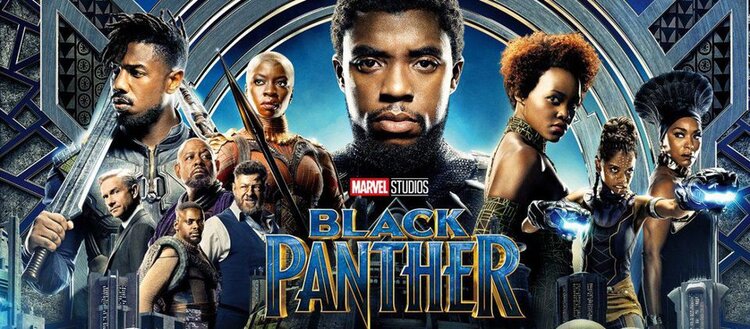
With the sudden passing of Chadwick Boseman, Black Panther has come to the forefront of many people’s minds; it holds a lot of significance to many. I can remember on opening night, rushing to my local theater wearing my Ankara printed pants and a giant grin on my face. I was surprised to see so many people dressed like me and excited about their African roots. It was one of the first times I felt I could be unapologetically African. Growing up, in a mostly Black American school, other students were perplexed by my heritage or even mean – holding to old stereotypes that Africa was totally impoverished and its inhabitants were uneducated.
While the movie is not without its flaws, Black Panther allowed many people to see their culture represented beautifully on the big screen. Unfortunately, Africa is still viewed through the lens of the “single story” even in mainstream media. In fact, it was the danger of the single story and racism that almost prevented Black Panther from becoming what it is today, even before it was released. Today, we’ll explore some of these dangers and celebrate the African cultures represented in the beautiful landscape of Wakanda.
COLORISM
Colorism is a preference for lighter skin tones, especially when referring to Black people. The danger of colorism is that it is often used to discriminate against black people and tends to erase darker-skinned people from the narrative. For example, Amandla Stenberg auditioned for the role of Shuri, T’Challa’s quick-witted little sister, and the mastermind behind his impressive suit. Stenberg dropped out of the audition to open a space for a woman of darker skin. Her thoughts on the matter were, “these are all dark skin actors playing Africans and I feel like it would have just been off to see me as a biracial American with a Nigerian accent just pretending that I’m the same color as everyone else in the movie.” And while certainly, the skin tone of Africans are presented in multiple of shades, Stenberg was lauded for her sensitivity to this issue.
Ultimately, Letitia Wright played an unforgettable Shuri with her memorable one-liners and expert acting, but the fact remains that the issue of colorism is still quite prevalent. Black stories are rich and diverse, and should be played by individuals who represent all shades of the spectrum of skin color of Black people. To limit the actors who tell Black stories to people of lighter skin tone is to enforce a preference for lighter skin color.

SIDEBAR – THIS IS WHY STORIES LIKE THAT OF A STORY ABOUT AFIYA EXCITE US SO MUCH! IT IS RARE TO SEE A LITTLE GIRL WITH DARK SKIN AND BANTU KNOTS ON THE COVER OF A BOOK. THAT REPRESENTATION IS SO LACKING, SO IT FEELS AMAZING TO FIND BOOKS WITH THAT TYPE OF REPRESENTATION.
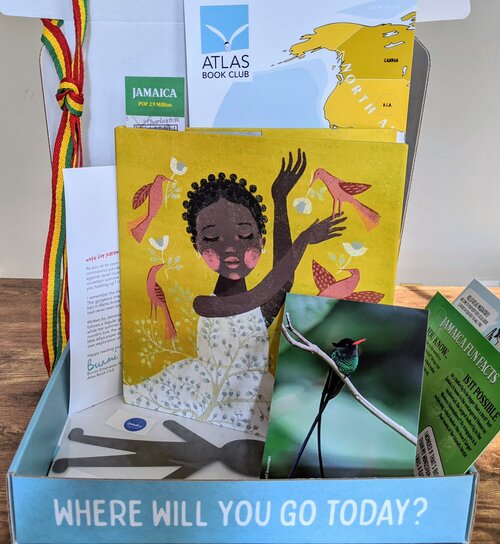
ERASURE OF NATIVE LANGUAGES
It was shocking to learn that producers considered writing T’Challa without an African accent! It’s hard to imagine that Black Panther would have held the charm it does without the mix of accents and dialects. Thankfully, Chadwick Boseman stood by his decision to speak with an African accent. If he had instead chosen a British or American accent some of the cultural significance of own-voices would have been lost. It is important that viewers hear African accents as they watch a movie set in Africa because it helps them form positive associations with the two, and be aware of people who may speak differently from what they are used to.

Also, it was fun trying to learn which countries had influenced the actors’ accents! We could see Kenyan influences in Black Panther including Lupita Nyong’o’s accent to the distinctive red cloth worn by the Dora Milaje. South Africa also enjoyed a cultural shout out since Xhosa was the primary language spoken by T’Chaka. Finally, Nigerian culture can be seen throughout the movie including the infamous mask Killmonger steals from the museum which bears a striking resemblance to an Igbo mask, the Mgbedike.
We love movies like Black Panther because they showcase African cultures in a positive light. We are treated to depictions of characters in an advanced Afro-futuristic landscape, and the expressions of unique and diverse cultures within African.
This month as we explore Kenya, South Africa, and Nigeria, we hope that you enjoy books that we have selected for you. These books represent kids being regular kids, going on adventures, and stories set in contemporary Africa. These books further challenge the single story and broaden you and your child’s worldview.
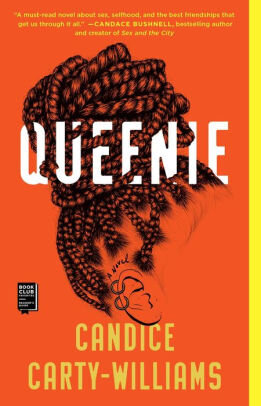
Exploring the diversity of the UK with books! Check out this list of ten books written by own voices or set in the UK. Whether you’re into romance, science fiction, or fantasy, there’s something for everyone on this list!
Queenie by Candice Carty-Williams
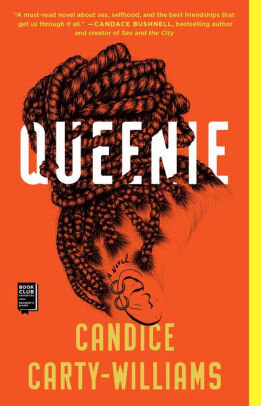
Queenie Jenkins is a twenty-five-year-old Jamaican British woman living in London, straddling two cultures and slotting neatly into neither. She works at a national newspaper, where she’s constantly forced to compare herself to her white middle class peers. After a messy break up from her long-term white boyfriend, Queenie seeks comfort in all the wrong places…including several hazardous men who do a good job of occupying brain space and a bad job of affirming self-worth.
As Queenie careens from one questionable decision to another, she finds herself wondering, “What are you doing? Why are you doing it? Who do you want to be?”—all of the questions today’s woman must face in a world trying to answer them for her.
With “fresh and honest” (Jojo Moyes) prose, Queenie is a remarkably relatable exploration of what it means to be a modern woman searching for meaning in today’s world. (Gallery/Scout Press)
Never Let Me Go by Kazuo Ishiguro
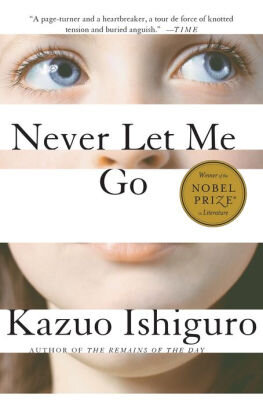
From the Booker Prize-winning author of The Remains of the Daycomes a devastating new novel of innocence, knowledge, and loss. As children Kathy, Ruth, and Tommy were students at Hailsham, an exclusive boarding school secluded in the English countryside. It was a place of mercurial cliques and mysterious rules where teachers were constantly reminding their charges of how special they were.
Now, years later, Kathy is a young woman. Ruth and Tommy have reentered her life. And for the first time she is beginning to look back at their shared past and understand just what it is that makes them special–and how that gift will shape the rest of their time together. Suspenseful, moving, beautifully atmospheric, Never Let Me Gois another classic by the author of The Remains of the Day. (Knopf DoubleDay Publishing)
The Song of Achilles by Madeline Miller
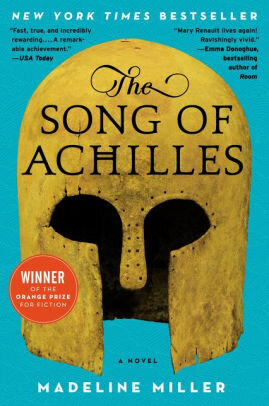
A tale of gods, kings, immortal fame, and the human heart, The Song of Achilles is a dazzling literary feat that brilliantly reimagines Homer’s enduring masterwork, The Iliad. An action-packed adventure, an epic love story, a marvelously conceived and executed page-turner, Miller’s monumental debut novel has already earned resounding acclaim from some of contemporary fiction’s brightest lights—and fans of Mary Renault, Bernard Cornwell, Steven Pressfield, and Colleen McCullough’s Masters of Rome series will delight in this unforgettable journey back to ancient Greece in the Age of Heroes. (HarperCollins Publishers)
Feel Free by Zadie Smith
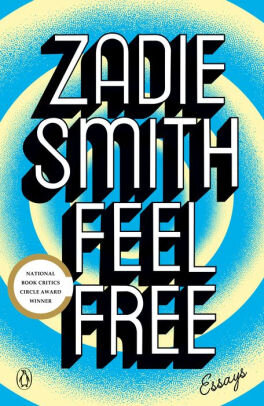
Arranged into five sections—In the World, In the Audience, In the Gallery, On the Bookshelf, and Feel Free—this new collection poses questions we immediately recognize. What is The Social Network—and Facebook itself—really about? “It’s a cruel portrait of us: 500 million sentient people entrapped in the recent careless thoughts of a Harvard sophomore.” Why do we love libraries? “Well-run libraries are filled with people because what a good library offers cannot be easily found elsewhere: an indoor public space in which you do not have to buy anything in order to stay.” What will we tell our granddaughters about our collective failure to address global warming? “So I might say to her, look: the thing you have to appreciate is that we’d just been through a century of relativism and deconstruction, in which we were informed that most of our fondest-held principles were either uncertain or simple wishful thinking, and in many areas of our lives we had already been asked to accept that nothing is essential and everything changes—and this had taken the fight out of us somewhat.”
Gathering in one place for the first time previously unpublished work, as well as already classic essays, such as, “Joy,” and, “Find Your Beach,” Feel Free offers a survey of important recent events in culture and politics, as well as Smith’s own life. Equally at home in the world of good books and bad politics, Brooklyn-born rappers and the work of Swiss novelists, she is by turns wry, heartfelt, indignant, and incisive—and never any less than perfect company. This is literary journalism at its zenith. (Penguin Publishing Group)
fiction’s brightest lights—and fans of Mary Renault, Bernard Cornwell, Steven Pressfield, and Colleen McCullough’s Masters of Rome series will delight in this unforgettable journey back to ancient Greece in the Age of Heroes. (HarperCollins Publishers)
Brick Lane by Monica Ali
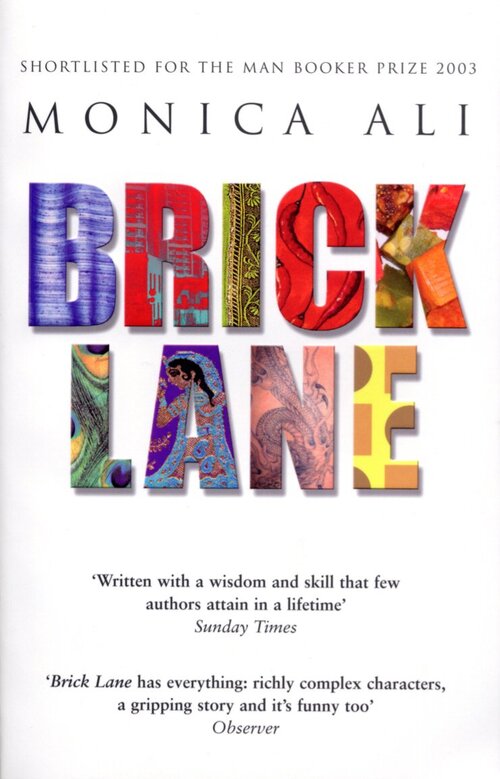
After an arranged marriage to Chanu, a man twenty years older, Nazneen is taken to London, leaving her home and heart in the Bangladeshi village where she was born. Her new world is full of mysteries. How can she cross the road without being hit by a car (an operation akin to dodging raindrops in the monsoon)? What is the secret of her bullying neighbor Mrs. Islam? What is a Hell’s Angel? And how must she comfort the naïve and disillusioned Chanu?
As a good Muslim girl, Nazneen struggles to not question why things happen. She submits, as she must, to Fate and devotes herself to her husband and daughters. Yet to her amazement, she begins an affair with a handsome young radical, and her erotic awakening throws her old certainties into chaos.
Monica Ali’s splendid novel is about journeys both external and internal, where the marvelous and the terrifying spiral together. (Scribner)
Girl, Woman, Other by Bernardine Evaristo
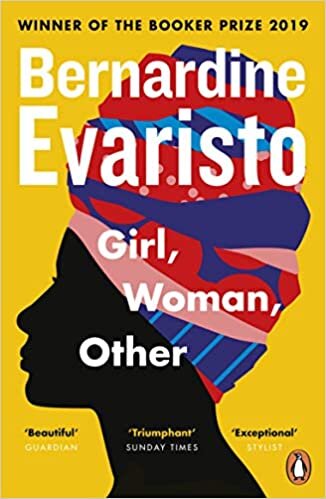
Bernardine Evaristo is the winner of the 2019 Booker Prize and the first black woman to receive this highest literary honor in the English language. Girl, Woman, Other is a magnificent portrayal of the intersections of identity and a moving and hopeful story of an interconnected group of Black British women that paints a vivid portrait of the state of contemporary Britain and looks back to the legacy of Britain’s colonial history in Africa and the Caribbean.
The twelve central characters of this multi-voiced novel lead vastly different lives: Amma is a newly acclaimed playwright whose work often explores her Black lesbian identity; her old friend Shirley is a teacher, jaded after decades of work in London’s funding-deprived schools; Carole, one of Shirley’s former students, is a successful investment banker; Carole’s mother Bummi works as a cleaner and worries about her daughter’s lack of rootedness despite her obvious achievements. From a nonbinary social media influencer to a 93-year-old woman living on a farm in Northern England, these unforgettable characters also intersect in shared aspects of their identities, from age to race to sexuality to class.
Sparklingly witty and filled with emotion, centering voices we often see othered, and written in an innovative fast-moving form that borrows technique from poetry, Girl, Woman, Other is a polyphonic and richly textured social novel that shows a side of Britain we rarely see, one that reminds us of all that connects us to our neighbors, even in times when we are encouraged to be split apart. (Grove/Atlantic, Inc.)
Honor by Elif Shafak
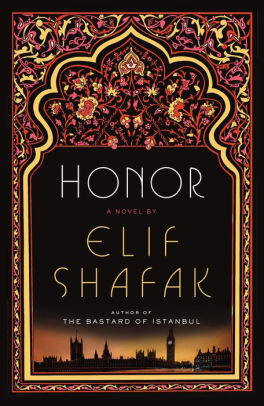
In this heartbreaking tale of love and misunderstanding, Shafak draws upon the dazzling insight, emotion, and drama that infused The Bastard of Istanbul to explore the controversial issue of honor killings as it tragically plays out in one family’s life.
Twin sisters are born in the mid-1940s in a small Kurdish village on the border of Turkey and Syria. Jamila becomes a local midwife. Pembe marries Adem, and they immigrate to London in the 1970s. Bitter and frustrated with his new life, Adem moves out and Iskender, their eldest son, must step in as keeper of the family’s honor. But when Pembe begins to spend time with another man, Iskender will discover that you could love someone with all your heart and yet be ready to hurt them. (Penguin Publishing Group)
The Things We Thought We Knew by Mahusda Snaith
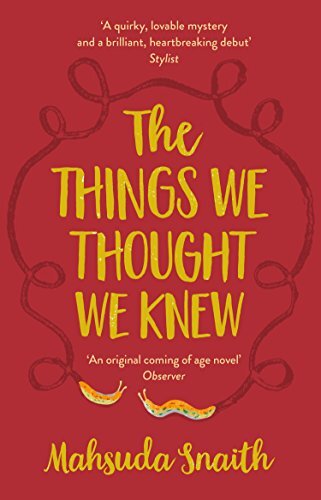
The first memory I have of you is all knickers and legs. You had flipped yourself into a handstand and couldn’t get back down. We became best friends, racing slugs, pretending to be spies – all the things that children do.
Ten years later, eighteen-year-old Ravine Roy spends every day in her room. Completing crosswords and scribbling in her journal, she keeps the outside world exactly where she wants it; outside.
But as the real world begins to invade her carefully controlled space, she is forced to finally confront the questions she’s been avoiding. Who is her mother meeting in secret? Who has moved in next door?
And why, all those years ago, when two girls pulled on their raincoats and wellies and headed out into the woods did only one of them return? (Transworld Publishers Limited)
All the Light We Cannot See by Anthony Doerr
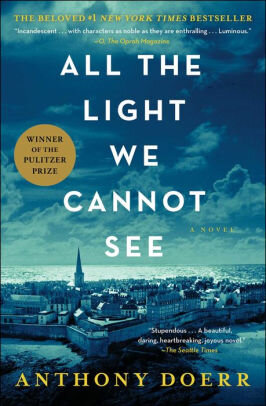
Marie-Laure lives in Paris near the Museum of Natural History, where her father works. When she is twelve, the Nazis occupy Paris and father and daughter flee to the walled citadel of Saint-Malo, where Marie-Laure’s reclusive great uncle lives in a tall house by the sea. With them they carry what might be the museum’s most valuable and dangerous jewel.
In a mining town in Germany, Werner Pfennig, an orphan, grows up with his younger sister, enchanted by a crude radio they find that brings them news and stories from places they have never seen or imagined. Werner becomes an expert at building and fixing these crucial new instruments and is enlisted to use his talent to track down the resistance. Deftly interweaving the lives of Marie-Laure and Werner, Doerr illuminates the ways, against all odds, people try to be good to one another.
Doerr’s “stunning sense of physical detail and gorgeous metaphors” (San Francisco Chronicle) are dazzling. Ten years in the writing, a National Book Award finalist, All the Light We Cannot See is a magnificent, deeply moving novel from a writer “whose sentences never fail to thrill” (Los Angeles Times). (Scribner)
Second Class Citizen by Buchi Emecheta
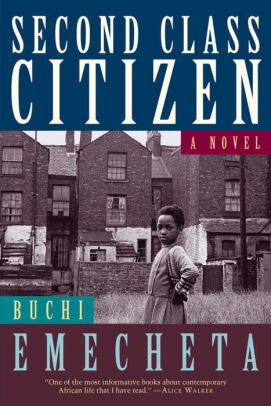
In the late 1960’s, Adah, a spirited and resourceful woman manages to move her family to London. Seeking an independent life for herself and her children she encounters racism and hard truths about being a new citizen. “Second Class Citizen pales a lot of academic feminist writing into insignificance.” –The Guardian (Brazillier, George Inc)
Atlas Book Club is a participant in the Amazon Services LLC Associates Program, an affiliate advertising program designed to provide a means for us to earn fees by linking to Amazon.com and affiliated sites.
Our goal is to bring you globally diverse books that will develop your child’s empathy and broaden their worldview!
